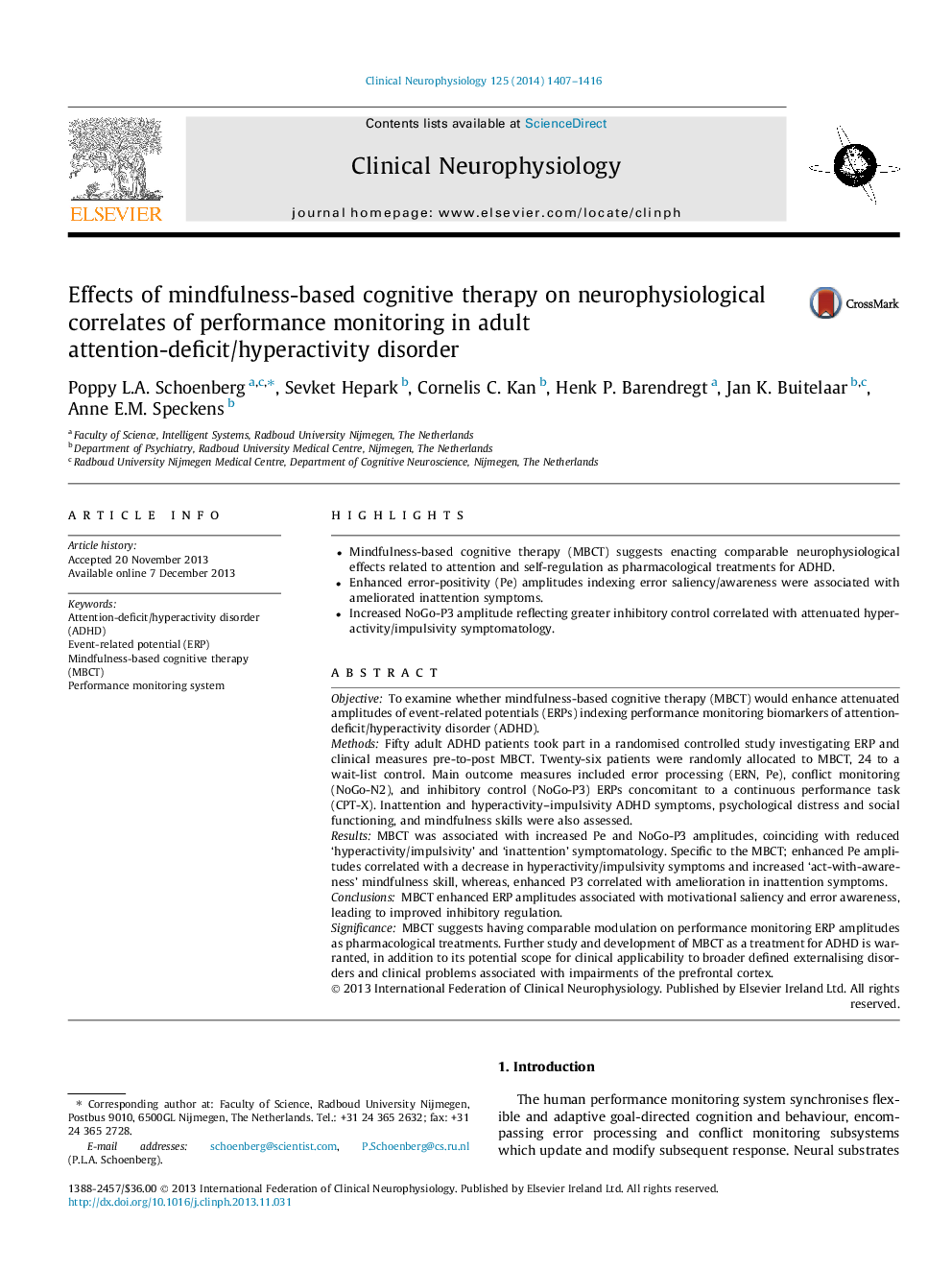| کد مقاله | کد نشریه | سال انتشار | مقاله انگلیسی | نسخه تمام متن |
|---|---|---|---|---|
| 3043913 | 1184988 | 2014 | 10 صفحه PDF | دانلود رایگان |
• Mindfulness-based cognitive therapy (MBCT) suggests enacting comparable neurophysiological effects related to attention and self-regulation as pharmacological treatments for ADHD.
• Enhanced error-positivity (Pe) amplitudes indexing error saliency/awareness were associated with ameliorated inattention symptoms.
• Increased NoGo-P3 amplitude reflecting greater inhibitory control correlated with attenuated hyperactivity/impulsivity symptomatology.
ObjectiveTo examine whether mindfulness-based cognitive therapy (MBCT) would enhance attenuated amplitudes of event-related potentials (ERPs) indexing performance monitoring biomarkers of attention-deficit/hyperactivity disorder (ADHD).MethodsFifty adult ADHD patients took part in a randomised controlled study investigating ERP and clinical measures pre-to-post MBCT. Twenty-six patients were randomly allocated to MBCT, 24 to a wait-list control. Main outcome measures included error processing (ERN, Pe), conflict monitoring (NoGo-N2), and inhibitory control (NoGo-P3) ERPs concomitant to a continuous performance task (CPT-X). Inattention and hyperactivity–impulsivity ADHD symptoms, psychological distress and social functioning, and mindfulness skills were also assessed.ResultsMBCT was associated with increased Pe and NoGo-P3 amplitudes, coinciding with reduced ‘hyperactivity/impulsivity’ and ‘inattention’ symptomatology. Specific to the MBCT; enhanced Pe amplitudes correlated with a decrease in hyperactivity/impulsivity symptoms and increased ‘act-with-awareness’ mindfulness skill, whereas, enhanced P3 correlated with amelioration in inattention symptoms.ConclusionsMBCT enhanced ERP amplitudes associated with motivational saliency and error awareness, leading to improved inhibitory regulation.SignificanceMBCT suggests having comparable modulation on performance monitoring ERP amplitudes as pharmacological treatments. Further study and development of MBCT as a treatment for ADHD is warranted, in addition to its potential scope for clinical applicability to broader defined externalising disorders and clinical problems associated with impairments of the prefrontal cortex.
Journal: Clinical Neurophysiology - Volume 125, Issue 7, July 2014, Pages 1407–1416
